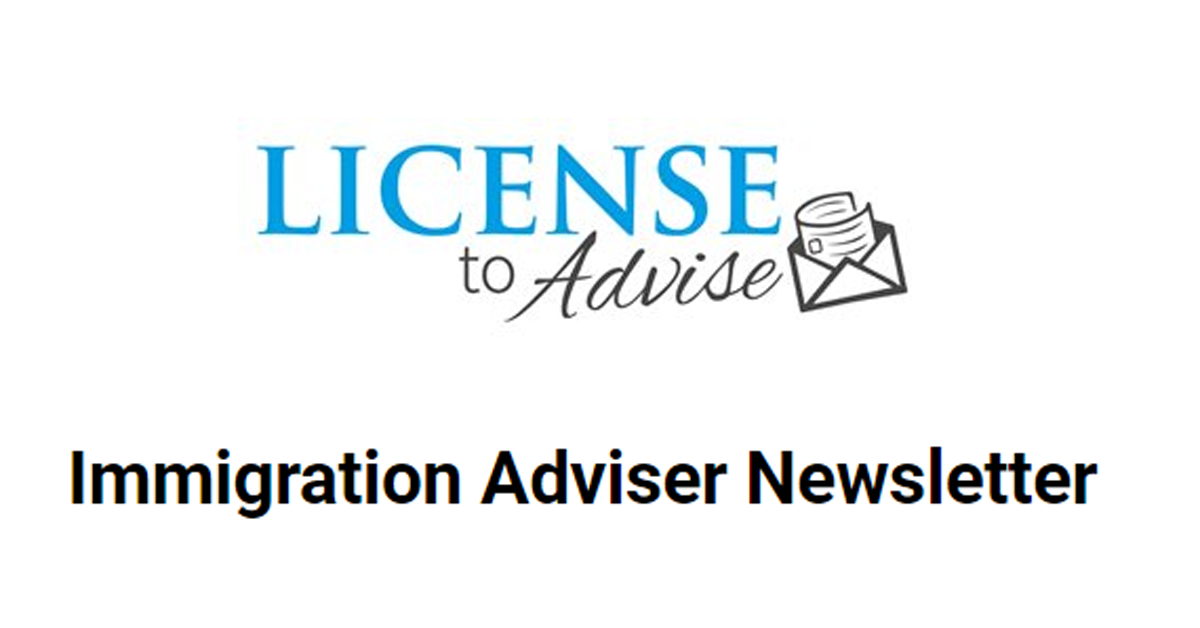
Immigration Advisor Newsletter – August 2021

Immigration Adviser Newsletter
Contact Marty Logan – August 2021

In this issue, we outline the main Privacy Act changes that impact you, the importance of good legal representation for residence visa holders and introduce a new Pitt & Moore team member.
Lockdown 2.0 for New Zealand
Immigration continues to be in the daily limelight, as the country continues to grapple with a lack of skilled workers, families desperate to reunite, and rapid changes to immigration laws. Of course, this week New Zealand is in a nationwide lockdown, while the Government determines just how widely the Delta variant has infiltrated our community.
We hear Immigration Minister Kris Faafoi’s office has been a revolving door to industry representatives and companies asking the New Zealand Government to allow skilled workers into the country, so that they can meet demand. And his mailbox is full of requests from families explaining why their husband, wife or child should be allowed to join them.
The Government has started to consider how it re-opens the border, announcing last week a “phased introduction of an individual risk-based approach to border settings in 2022”, but it will take time for the Government to update the current immigration instructions. We can expect for 2022 to be another year of multiple amendments to Immigration Instructions with possible staged relaxation on border restrictions, depending on how well New Zealand is tracking with vaccinations and keeping Covid at bay.
One recent change of relevance to you was the increase in the duration of lower-paid Essential Skills visas, and an introduction of a streamlined application process. This may benefit many work visa holders in New Zealand, but not all. This Ministerial speech is quite a good scene-setter if you would like to know more about the overarching Government’s immigration reset.
As part of our role keeping abreast of the issues, we have been attending and contributing to a number of industry conferences and events. For example, we have presented at the CCH Learning Immigration Law Conference on reuniting partners during COVID-19, the Legalwise conference about work visa applications and employment law, and the NZAMI seminar on the Privacy Act. We also presented to Toi Ohomai students on residence applications. It is clear that the sector is concerned about the complexities of the changes being encountered in the immigration space but that there is a commitment to ensuring employers and visa holders get the best advice they can get.
In this newsletter, we provide a short update about the Privacy Act, outlining the key things you need to do to be compliant, highlight the risk of poor legal representation for your residence visa clients, share key takeaways from a speech made by the Chair of the Immigration Advisers Complaints and Disciplinary Tribunal and welcome Mahafrin Variava to our immigration team.
As always, feel free to let us know via email if there is anything in particular you would like us to provide information about. We would love your feedback, comments, queries, and suggestions as to how we can best help Immigration Advisers.
Stay well and safe!
Marty Logan
Lockdown 2.0 for New Zealand
Four key main points
There are four main points you need to be aware of following the changes to the Privacy Act.
- Take reasonable steps to ensure that any person from whom you collect personal information from is aware of various matters, such as the fact that the information is being collected, why it is being collected and who will be the recipients.
- Only collect private information from individuals for a lawful purpose (and only to the extent it is necessary for that lawful purpose).
- Notify the Office of the Privacy Commissioner and the individual affected where a privacy breach poses a risk of serious harm to that individual (which is assessed taking into account various factors prescribed in the new Act).
- Appoint a privacy officer.
To help get all of the above right, have a look through the Office of the Privacy Commissioner’s training videos and courses. They are well put together, but we are also here to help if you need us.
It is equally important to update your written agreements with reference to the new Privacy Act. We can help review and prepare written service agreements, and draft special clauses to address specific circumstances.
Also, written agreement required for charging clients to access personal information
It is good practice to have standard clauses in your written agreements to ensure your clients know you may charge a (reasonable) fee if they want to access their files or records. If there is no prior written agreement to these costs, you need to provide estimates in writing and get written agreement from clients before proceeding to charge them. We wanted to alert you to this, as these are important to ensure compliance to the Privacy Act and clauses 21(a), (b) and (c) of the Code.
What if I don’t comply with the Privacy Act?
Fines for non-compliance with the Act can extend to $10,000 per incident, and damages payable to the victim for serious breaches could exceed $100,000. Putting the pure legal and financial ramifications to one side, there are also reputational impacts should the story hit the media.
You can read more here about updating your policies to align with Privacy Act requirements.
You can read more here about updating your policies to align with Privacy Act requirements.
Assisting New Zealand residents with deportation liability proceedings
We are concerned that residence visa holders are not always well represented by duty solicitors in their criminal proceedings, with convictions impacting on their future in New Zealand. We have seen this happen many times, and have also seen residence visa holders facing re-activation of deportation liability after they re-offend during their suspension period.
Where the deportation liability has arisen as a result of criminal convictions, it is important and highly beneficial for residence visa holders to get professional legal advice on whether their sentence and/or conviction can be challenged.
Depending on the type of offending, a lesser sentence and/or discharge without conviction can make a considerable difference (i.e. no longer being liable for deportation under the Immigration Act). In certain circumstances, convictions and/or sentences can be appealed out of time.
If your client has been subject to criminal proceedings, it would be good to ask them if they feel they received adequate legal representation and whether the court considered how their conviction would impact on their ability to remain in New Zealand. If their answer is no, expert advice is needed.
We have extensive experience in this area. Yvanca Clarisse has acted for numerous visa holders defending criminal charges, including preparing appeals out of time. Yvanca has recently published a useful article on the interface between criminal and immigration law in New Zealand.
From the Tribunal
Immigration Advisers Complaints and Disciplinary Tribunal Chair David Plunkett presented at the recent CCH Learning Immigration Law Conference in Auckland. In his presentation he highlighted that the backlog of complaints before the Tribunal has reduced. At the time of his presentation, there were only six complaints on hand and the average processing time before the Tribunal has decreased significantly from 12-18 months to 5-6 months.
That the disciplinary proceedings for immigration advisers are being resolved much faster before the Tribunal is welcome news.
Mr Plunkett pointed out that the Tribunal doesn’t have the power to make decisions on wrongdoing or misconduct that has not been referred by the Registrar of the Immigration Advisers Authority. So, even if the Tribunal can identify misconduct, if it is not subject to a formal complaint, it doesn’t have the statutory authority to act on it.
Mr Plunkett also stressed that being silent and not engaging in the disciplinary process either before the Immigration Advisers Authority and/or the Tribunal will result in an adverse inference being drawn by the Chairperson, which may in turn have an impact on the severity of sanction(s) imposed on the relevant immigration adviser.
We are well placed to provide expert advice to immigration advisers covering a wide range of issues, including on how to handle a complaint before the Immigration Advisers Authority and/or the Tribunal.
If you ever need advice to help resolve a complaint or conflict with a client, then please reach out to me at Marty.Logan@pittandmoore.co.nz.
From our office
Mahafrin joined Pitt & Moore as a Senior Solicitor, practising Immigration Law and Employment Law. Mahafrin has over five years’ legal experience and has previously assisted clients from a wide range of countries, including India, China, United States, Philippines, Indonesia, Canada and United Kingdom.
Raised in Dubai and Abu Dhabi, and having travelled the world, Mahafrin can help clients in their native languages of Hindi, Gujarati, Punjabi and Urdu.
With Mahafrin’s wealth of knowledge and experience, she is a great asset to our Immigration team.

We speak your language
At Pitt & Moore we are proud that many of our lawyers and legal staff are fluent in their own native languages as well as many others – 12 to be exact including Dutch, German, Russian, Hindi, Gujarati, Urdu, Arabic, Mandarin, Cantonese, Japanese, French and Italian.
Sometimes it can be very difficult to discuss personal matters with a lawyer, however, the reason for this shouldn’t be because of a language barrier.
To speak to one of our multilingual lawyers or legal staff contact us today on (+64) 3 548 8349.
Upcoming dates of interest
31 October: Last day to submit Talent (Accredited Employer) or Long Term Skill Shortage List Work Visa applications
11 November: Immigration Law Conference in Auckland, Pitt & Moore presenting on Professional Conduct Issues in Practice: Recent Case Law and Managing Compliance Risk
Mid – 2022: The new Accredited Employer Work Visa (AEWV) scheme will come into effect and Essential Skills Work Visa Category will be scrapped
1 July 2022: The implementation of the stand-down period comes into place. The stand-down period requires people on lower-paid Essential Skills work visas to leave New Zealand after a certain amount of time before they can apply for another lower-paid work visa.
Past editions of our Newsletter
March 2021 edition – covers implications of lockdown on minimum wage payments, code of conduct issues, and ‘rubber stamping’ practices among other highlights.
December 2020 edition – shares insights, changes and critical information relevant to Immigration Advisers across New Zealand and beyond